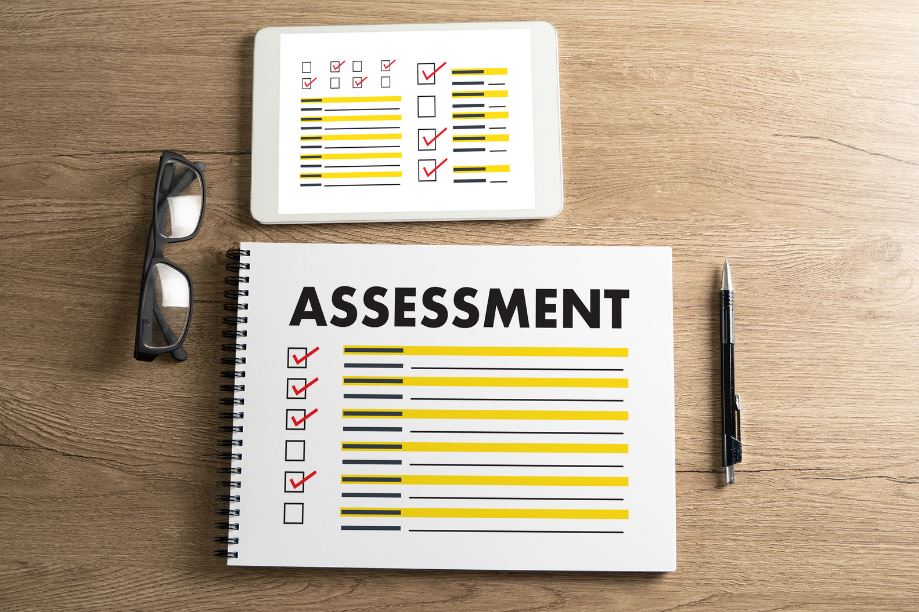Discover the secrets of AI interviews through innovative intelligent conversations. HR and recruitment teams can harness the power of this cutting-edge technology to save time and resources, all the while enhancing the quality of their processes.
In the dynamic landscape of talent acquisition, businesses are constantly seeking ways to streamline their recruitment processes. Ensuring that their hiring practices remain both efficient and unbiased is key. Traditionally, the recruitment process has been laden with inefficiencies that not only consume valuable time and resources but also perpetuate biases that hinder the formation of diverse and inclusive workforces.
Importance of Efficiency in Human Resources
As organizations recognize the pivotal role of People management, a shift towards smarter solutions is evident. The traditional methods of talent recruitment have long been characterized by labor-intensive tasks:
- manual resume screening
- numerous rounds of interviews
- prolonged decision-making processes.
This not only extends the time-to-hire but also expends considerable effort on repetitive tasks that could otherwise be allocated to higher-value responsibilities. These inefficiencies often lead to missed opportunities to secure the best talent, leaving organizations struggling to stay competitive.
Importance of unbiased hiring practices
In today’s fiercely competitive job market, the significance of an efficient recruitment process cannot be overstated. The ability to swiftly identify, assess, and secure top-tier candidates can be the difference between an organization propelling forward or lagging behind.
There’s a growing recognition that unbiased hiring practices are a cornerstone of building diverse and high-performing teams. Biases, whether conscious or unconscious, can inadvertently skew hiring decisions, leading to a lack of diversity and a missed chance to tap into a broader range of skills and perspectives.
Most frequent challenges in recruiting departments
The amount of inefficiencies that recruiting teams are facing today is big. There are several situations where hiring new members for teams create stress and a bad impact on organizations. Lets take a look at few challenges in hiring new employees.
High Rate of Wrong Hires:
- A staggering 74% of employers acknowledge the problem of hiring the wrong candidate. This not only wastes time and resources but can also lead to long-term negative impacts on team dynamics and productivity.
- The cost of a wrong hire goes far beyond just financial implications. Hiring a candidate who doesn’t fit the role or the company culture can lead to diminished team morale, disrupted workflow, and strained working relationships.
- It also requires additional resources to manage the fallout and potentially initiate the hiring process all over again. Moreover, a wrong hire can tarnish the employer’s reputation, making it harder to attract top talent in the future.
Mismatched Candidate Selection:
- Settling for candidates who don’t sufficiently match the job role can result in a cycle of dissatisfaction. Employees who feel underqualified or out of their depth are less likely to engage actively, seek growth opportunities, or contribute effectively to the team.
- Approximately 61% of employers have found themselves settling for candidates who didn’t adequately match the job role. This can result in suboptimal performance, dissatisfaction, and additional hiring costs.
- This could lead to higher turnover rates, as employees who realize they aren’t in the right role may leave for better-fitting opportunities. It’s imperative to align candidate skills, experience, and motivations with the role’s demands to ensure a successful match.
Stringent Job Criteria Filtering:
- Focusing solely on exact criteria mentioned in job descriptions can inadvertently exclude highly skilled candidates who might bring fresh perspectives and innovative ideas to the team.
- An overwhelming 88% of employers agree that the rigid adherence to exact criteria mentioned in job descriptions leads to the exclusion of qualified high-skilled candidates. This approach might overlook potential top performers and innovative thinkers.
- Straying from the predetermined mold can lead to discovering hidden talents who possess transferable skills and adaptability. Openness to broader skill sets and experiences can enhance the diversity and creativity of the workforce.
Extended Time-to-Hire:
- The extended time it takes to fill a position not only hinders the organization’s ability to adapt and grow but also risks losing out on top talent to competitors with quicker recruitment processes. The average time to fill a position stands at 36 days, which contrasts starkly with the fact that the most promising candidates are often off the market within just 10 days.
- Lengthy recruitment processes can result in losing out on top talent to faster-moving competitors. A slow hiring process can lead to frustration among candidates, especially high-demand ones who receive multiple offers.
- Such candidates are likely to accept the first favorable offer that comes their way, leaving employers with fewer options and potentially compromising on quality.
Costly Hiring Mistakes:
- The financial impact of a bad hire is substantial. Beyond the direct expenses associated with recruitment, onboarding, and training, there are hidden costs such as decreased team productivity, time spent by management in addressing the issue, and potential legal ramifications if a wrongful termination occurs.
- Making a bad hire doesn’t just affect immediate productivity; it comes with a hefty financial burden. On average, the cost of losing a good hire amounts to around $30,000, factoring in recruitment, training, and potential severance costs.
- The financial toll extends even further when considering the ripple effect on employee morale, client relationships, and overall company performance.
Negative Impact on Morale and Productivity:
- Bad hires not only affect the individual’s performance but can also bring down the morale of the entire team. When colleagues witness a new hire struggling or not pulling their weight, it can lead to demotivation, resentment, and a dip in overall team spirit.
- The repercussions of a bad hire ripple throughout the organization. Bad hires have been linked to a significant 32% drop in employee morale and a substantial 36% decrease in overall productivity.
- This negatively impacts team collaboration, communication, and ultimately, productivity. Addressing the consequences of a bad hire can take substantial effort and time away from core business activities.
In light of these challenges, it’s evident that a thorough and strategic approach to hiring is essential. Organizations need to focus on holistic candidate assessments, incorporating not just technical skills but also cultural fit, soft skills, and potential for growth. By adopting a well-rounded evaluation process, employers can mitigate these challenges and build a team that propels the organization toward success.

What are the benefits of AI in the hiring process?
As organizations grapple with the challenges of identifying the right candidates amidst a sea of resumes and cover letters, AI tools are emerging as a beacon of efficiency and objectivity. The role of AI in HR is expanding rapidly, with AI-powered interview tools leading the charge. These tools harness the power of machine learning and natural language processing to evaluate candidates, predict their potential fit for roles, and analyze their responses, transcending human limitations and biases.
In today’s fast-paced business landscape, finding the right talent efficiently is crucial for an organization’s success. Artificial Intelligence toolset for recruiting managers is reshaping the hiring process in more ways than one. Let’s explore the benefits, key components, advantages, challenges, and ethical considerations of integrating AI interviews, AI conversations, and AI recruitment tools into the HR process.
In an era where time is money and talent is a critical asset, the process of hiring new employees has taken center stage in organizational strategies. The advent of AI interviews, AI conversations, and AI recruitment is transforming the hiring landscape, offering efficiency, unbiased selection, and improved decision-making. In this article, we will delve into the intricacies of these AI-driven processes, exploring their benefits, key components, advantages, challenges, and ethical considerations.
Time and cost efficiency
- Time is of the essence when it comes to securing top talent.
- AI interviews streamline the process by automating time-consuming tasks.
- This also minimizes operational costs associated with manual screenings and interviews.
- The traditional hiring process often involves a laborious cycle of reviewing resumes, conducting initial screenings, and scheduling interviews. AI interviews revolutionize this by automating repetitive tasks.
- Screening resumes, evaluating responses, and shortlisting candidates are all accelerated, reducing the overall time-to-hire.
- This efficiency not only frees up HR professionals for more strategic work but also minimizes operational costs tied to manual labor.
Scalability of candidate evaluation
- As job markets become more competitive, organizations receive a larger influx of applications.
- AI recruitment tools can swiftly sift through resumes, identifying suitable candidates and enabling HR professionals to focus on higher-value tasks.
- In a job market flooded with applicants, the scalability of AI interviews shines.
- AI-powered algorithms swiftly analyze large volumes of resumes, pinpointing candidates with the right qualifications and skills.
- This scalable approach ensures that no qualified candidate slips through the cracks and empowers HR teams to focus on the critical aspects of candidate evaluation.
Reduction of human bias
- Human biases, often unconscious, can skew hiring decisions.
- AI brings objectivity by assessing candidates based on their qualifications and skills rather than personal attributes.
- Human biases, whether conscious or unconscious, can significantly impact hiring decisions, leading to a lack of diversity and missed opportunities.
- AI interviews sidestep these biases, evaluating candidates based purely on their qualifications and skills.
- This objectivity enhances diversity, leading to more inclusive and well-rounded teams.

Key process AI Interviews can speed up
Resume Screening
- Utilizing AI to Parse and Analyze Resumes:
- AI-powered algorithms can analyze resumes at scale, extracting relevant information and keywords to match candidates with job requirements more effectively.
- Traditional resume screening can be painstaking, prone to human errors, and susceptible to overlooking valuable information. AI-integrated systems analyze resumes systematically, extracting crucial keywords, experiences, and qualifications, ensuring comprehensive evaluations.
- Matching Skills and Qualifications to Job Requirements:
- AI evaluates resumes against job descriptions, highlighting the most qualified candidates and allowing HR professionals to make informed decisions.
- The heart of an effective AI interview lies in its ability to match candidate profiles with job requirements. AI algorithms swiftly compare resumes against job descriptions, presenting HR professionals with a curated pool of candidates whose skills align with the role.
Chatbot Preliminary Interviews
- Interactive Chatbot Initial Assessments:
- Chatbots engage candidates in preliminary conversations, gathering essential information and gauging their interest in the role. This interactive process offers a seamless and user-friendly experience.
- AI-driven chatbots engage candidates in dynamic conversations, gathering insights beyond what a static resume can offer. These interactive assessments delve into a candidate’s motivations, cultural fit, and initial responses, providing valuable early-stage insights.
- Efficient Filtering of Candidates Based on Predefined Criteria:
- Chatbots can quickly filter out candidates who don’t meet the initial criteria, ensuring that only the most relevant candidates proceed to the next stages.
- Chatbots perform an essential gatekeeping role, efficiently filtering out candidates who don’t meet predetermined criteria. This ensures that HR professionals invest time and effort in evaluating candidates who align with the organization’s needs.
Video Assessments
- AI-Driven Video Interview Analysis:
- Video interviews are becoming increasingly popular. AI can analyze candidates’ video responses, evaluating factors like communication skills, demeanor, and responses to specific questions.
- Video assessments are growing in prominence, offering a more holistic view of candidates’ personalities, communication skills, and presentation abilities. AI steps in to analyze these video responses, identifying strengths, weaknesses, and cultural alignment.
- Evaluation of Non-Verbal Cues and Communication Skills:
- AI is capable of detecting non-verbal cues, enhancing the evaluation of a candidate’s communication skills, confidence, and overall suitability for the role.
- Beyond verbal responses, AI’s analytical prowess extends to non-verbal cues like facial expressions, body language, and tone of voice. These subtleties contribute to a more comprehensive evaluation of a candidate’s suitability.
Artificial Intelligence candidate assessment
- 1. Understanding a Large Quantity of Candidates Without Bias
- AI steps in with its unparalleled ability to process and understand vast amounts of data efficiently. AI algorithms are trained to analyze resumes, cover letters, and application forms swiftly, extracting essential information while eliminating human biases that might inadvertently creep into the decision-making process.
- AI’s objectivity ensures that each candidate is evaluated based solely on their qualifications, skills, and experience.
- Filtering the relevant aspects for recruiters to select the best Talent
- Amidst the sea of applicant data, it’s crucial for recruiters to identify the most relevant aspects that align with the job requirements. AI-powered candidate assessment tools excel in this regard. These tools can intelligently parse candidate profiles, extracting key skills, qualifications, work experiences, and other pertinent attributes that match the job description.
- The beauty of AI lies in its ability to not just identify keywords but to understand context. It goes beyond the surface, recognizing the nuances in a candidate’s background and experience.

Challenges and Considerations of AI Interviews in Recruiting
Data privacy and security concerns:
While AI interviews hold immense promise, handling candidate data demands rigorous data privacy measures. Safeguarding sensitive information and complying with regulations are paramount:
Utilizing AI in interviews requires collecting and storing candidate data. Organizations must ensure robust data privacy measures to protect candidates’ sensitive information.
Risk of over-reliance on AI without Human oversight:
While AI is a powerful tool, it’s important to strike a balance between automation and human involvement. Human oversight ensures that the AI-driven selections align with the organization’s goals and values.
While AI offers efficiency, human oversight is irreplaceable. Striking a balance between automation and human involvement is crucial to ensure AI-driven selections align with organizational goals and values.
Ensuring a positive candidate experience:
The introduction of AI conversations and assessments should enhance the candidate experience, not hinder it. Organizations should ensure that candidates find the AI interactions engaging, informative, and respectful.
As organizations integrate AI conversations and assessments, ensuring candidates have a positive experience is vital. AI interactions should be user-friendly, informative, and respectful to maintain the organization’s reputation.
Implementing AI Interviews in HR
- Integration with Existing HR Systems:
- Integrating AI interviews seamlessly into existing HR systems requires proper planning and tech integration. Compatibility and user-friendliness are paramount.
- Seamlessly integrating AI interviews into existing HR systems requires careful planning and tech integration. Compatibility with current tools and a user-friendly interface are paramount.
- Employee Training and Orientation:
- HR teams need to be well-versed in using AI recruitment tools effectively. Training ensures that AI-driven processes align with company objectives.
- While AI simplifies many tasks, HR teams must be trained to use AI recruitment tools effectively. Training ensures that AI-driven processes align with company objectives and values.
- Monitoring and Optimizing AI Interview Processes:
- Continuous monitoring and analysis of AI interview outcomes are essential to refine the process and enhance its accuracy over time.
- Continuous monitoring of AI interview outcomes is essential for refining the process over time. Analyzing success rates, candidate feedback, and other metrics enhances accuracy and effectiveness.
Ethical and Legal Implications
A. Transparency in AI Decision-Making:
- Candidates should be informed when their interactions are AI-mediated. Transparency builds trust and aligns with ethical standards.
- Ethical considerations dictate transparency in AI interactions. Candidates should be informed when they are interacting with AI-driven processes, promoting trust and transparency.
B. Legal Compliance and Adherence to Anti-Discrimination Laws:
- Organizations must ensure that AI-driven decisions do not violate anti-discrimination laws. Fairness and equal opportunity are non-negotiable.
- Fair hiring practices extend to AI interviews. Organizations must ensure that AI-driven decisions align with anti-discrimination laws to avoid legal pitfalls.
C. Importance of Explainable AI in Hiring Decisions:
- Explainable AI ensures that the decision-making process is transparent and comprehensible.
- Creating a culture of trust among candidates improves branding recogntion as “best place to work”. Providing HR professionals with the right information to take the best decisions, empowers the people to maximize their value.
The Future is now
In conclusion, AI interviews, AI conversations, and AI recruitment tools offer substantial benefits to the hiring process, making it more efficient, unbiased, and effective. However, it’s crucial to navigate challenges while maintaining ethical considerations and human oversight.
By embracing AI in HR, organizations can unlock a competitive advantage in securing the right talent for their teams. AI recruitment tools signifies a monumental shift in how organizations approach talent acquisition. The benefits of efficiency, unbiased selection, and streamlined processes are evident, yet careful consideration of ethical and practical challenges remains crucial.
By embracing AI interviews in HR, organizations not only enhance their recruitment strategies but also pave the way for a more diverse, inclusive, and innovative workforce.




